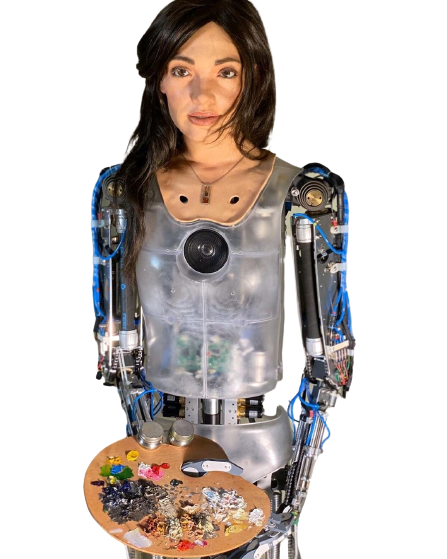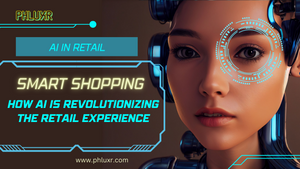Shopping has always been a therapeutic experience for many people. Since the advent of the epidemic, many people have viewed it as a burdensome requirement. The fear of getting the virus has caused an increase in online purchasing, but many people still prefer the more intimate and tailored experience of brick-and-mortar stores. Intelligent shopping assistants could change how we shop and solve this issue.
What is an AI-powered Personal Shopping Assistant?
An AI-powered personal shopping assistant uses AI to help consumers identify goods that fit their specific criteria. It examines information, including a user's purchase and search history, to make helpful recommendations. It uses NLP (natural language processing) to interpret client requests and provide conversational responses.
How does it work?
The machine learning algorithms used by the AI-powered personal shopper consider a shopper's past purchases, browsing habits, and preferences. It uses this information to make product recommendations to the user. As a result, the shopper might obtain recommendations tailored to their tastes and needs from the assistant.
The AI-driven shopping assistant can do more than just make suggestions; it can also provide detailed information on the items suggested, including their characteristics, user reviews, and prices. The shopper is then better equipped to choose amongst available options.
Real World Example: H&M's AI-powered Personal Shopping Assistant

H&M has now released a shopping assistant on its app that combines artificial intelligence and machine learning to tailor recommendations to each consumer. To determine a customer's taste in clothing, the sales associate will ask them a series of questions. In addition, patrons can snap a picture of a product they enjoy and have the virtual aide recommend additional items that complement their taste.
The helper also describes the items in detail, including the materials used, the available sizes, and the prices.
Benefits of AI-powered Personal Shopping Assistants
Customized Interaction:
Customers can get a one-of-a-kind shopping experience with the help of AI-powered personal shopping assistants. They can personalize the buying experience by generating recommendations based on a customer's likes, dislikes, and past actions.
Convenience:
Personal shopper services can be used online, saving customers the trouble of visiting a store. Those with limited time or mobility can still go grocery shopping.
Personal shoppers who make helpful product recommendations to customers can boost revenue. This is exciting news for stores because it can increase sales.
Enhanced Interaction with Customers:
AI-powered personal shopping assistants can start conversations with customers, transforming shopping into a social activity. This can improve customer communication, resulting in increased customer retention and loyalty.
However, there are some obstacles that shops need to think about before introducing AI-powered shopping assistants. Validating the precision and dependability of the technology is a significant obstacle. Machine learning algorithms generate recommendations made by personal shopping assistants; if these algorithms are erroneous or biased, the consumer experience will suffer. Customers may feel overloaded by the volume of customization and suggestions, leading to paralysis from analysis paralysis and dissatisfaction.
If you want to stay ahead of the competition, you'll need to use all the resources at your disposal, including the knowledge and expertise of your employees. In addition, stores need to find a happy medium between providing highly customized advice and making things too complicated for their customers.
The Impact of AI-Powered Personal Shopping Assistants on the Retail Industry

The advent of intelligent shopping assistants has far-reaching effects on the retail sector and how consumers shop. Artificial intelligence in the form of personal shopping assistants is influencing the retail industry in the following ways:
Better Interactions with Customers:
Using consumer data, machine learning algorithms in personal shopping assistants can make tailored suggestions. This customization improves the shopping experience since customers can more quickly locate the necessary goods.
Sales Boost:
Specials can be boosted with the help of personal shopping assistants by making pertinent suggestions and presenting relevant discounts and specials.
Improved Inventory Management:
By shedding light on customers' purchasing habits, personal shopping assistants can aid stores in better managing their stock. With client browsing and purchase data, stores can better predict what items will be most demanded and stock up accordingly.
Valuable Data Insights:
A plethora of information, such as purchase history, browsing habits, and preferences, is gathered by personal shopping assistants. This information is helpful for stores because it allows them to learn more about their clientele, refine their advertising strategies, and make more calculated choices about what to stock and how much to order.
Cost Savings:
The retail industry can save money on labor costs and increase profits by automating customer service and product recommendations.
Future of AI-powered Personal Shopping Assistants
Personal shopping assistants driven by artificial intelligence are becoming increasingly popular. Nonetheless, development and improvement are possible because the technology is so new. Some potential advances in AI-driven shopping assistants are listed below.
Real-World Augmentations:
Customers may soon be able to use virtual try-ons provided by personal shopping assistants, thanks to the development of augmented reality (AR) technology.
Digital Voice Assists:
Customers may soon be able to utilize voice commands to shop, inquire about products, and more, thanks to the development of natural language processing (NLP) technology.
Customized Rates:
AI-powered personal shopping assistants also offer customers customized pricing based on past purchases, browsing habits, and other preferences. This leads to more specific offers and promotions, boosting sales even further.
Connectivity to Smart Home Gadgets:
Personal shopping assistants may soon be able to interact with smart home gadgets like Amazon's Alexa and Google Home, allowing users to make purchases just by speaking to the device.
Conclusion
With the use of artificial intelligence, personal shopping assistants are improving the shopping experience for consumers. Personal shopping assistants are getting more sophisticated with the emergence of machine learning and natural language processing technologies, providing merchants with important data insights and prospects for excellent sales and better consumer engagement.
More advances in the industry, such as augmented reality, voice assistants, and personalized pricing, are likely as technology advances. These developments will benefit stores and improve the shopping experience for consumers.
Personal shopping assistants driven by artificial intelligence (AI) have the potential to revolutionize the retail sector, and further exciting breakthroughs in this area are on the horizon.


